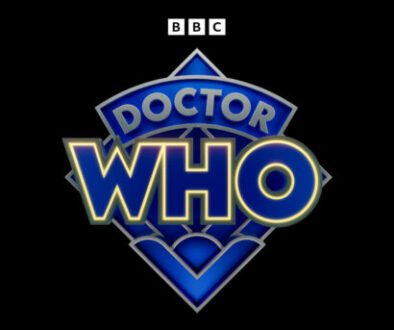Doctor Who – “Joy to the World” Review – Oh, Jesus
Clint Hassell gives his SPOILER-filled commentary on the 2024 Christmas Special.

Note: this review contains full SPOILERS for 2024 Christmas Special.
“Joy to the World,” the 2024 Doctor Who Christmas special, is a holiday feast of former showrunner Steven Moffat’s signature tricks. Acclaimed for many of modern Who’s finest stories, including “Blink,” “Silence in the Library,” “Listen,” and “Heaven Sent,” Moffat packs what he notes may be his final episode with a mystery surrounding a commonly encountered object—here, the normally-locked door that connects two adjoining hotel rooms—a time-twisted plot line, and an emphasis on emotional resonance over narrative logic.
What sets “Joy to the World” apart from many of Moffat’s greatest scripts is the number of unnatural events that are forced to happen to establish the episode’s narrative. For example, housekeeping staff at the Sandringham Hotel apparently do not leave fresh towels when cleaning rooms, requiring the hotel’s manager to bring towels to each new guest. This is senseless in the real world, but it is necessary here to introduce Anita as a resource with whom the Doctor can speak once he is abandoned in 2024 by his future self. Joy has a conversation with a buzzing fly, to portray the character as lonely and a little quirky, as if her interactions with Anita at the front desk hadn’t already established those facts. Joy finds a hairdryer in the writing desk and not in the bathroom, just so the Time Hotel’s Silurian manager can mistake it for a brandished weapon seconds later. Once examined, these nonsensical occurrences seem extraordinarily out of place, which begs the question: why did Steven Moffat make these narrative choices?
Compare these examples to one that works marvelously well, despite—or, perhaps, due to—its simplicity. The Doctor suspects the alien briefcase’s initial handler because the man isn’t looking up at the Time Hotel’s wondrous atrium, despite this being the man’s first visit. Because this explanation eschews technobabble and focuses on normal human behavior, the audience is drawn into the mystery. Astute viewers could’ve spotted this clue themselves. Conversely, consider how it is possible to feature unnatural behavior in a relatable manner. Fifteen grabs his coat and sonic screwdriver before he’s consciously pondered why—a novel way to depict how intrinsic being hyper-aware and helping others is to the Doctor’s character.

The revelation that the Doctor was unknowingly mulling over the strange man with the briefcase in the hotel’s lobby dovetails with a later scene where Fifteen verbally acknowledges his grief at losing his most recent companion, Ruby Sunday, to a life with her biological mother. “Do you know how alone you are?” the Doctor cries, literally to himself, “You live in a great big, giant spaceship, and there aren’t any chairs, and you haven’t even noticed because nobody ever comes ‘round! Oh my god, I don’t have any chairs.” Usually in Doctor Who, previous iterations of the titular Time Lord are considered from the viewpoint of the present incarnation, and interactions are played for laughs—think One’s anachronistic sexism in “Twice Upon a Time”; Ten and Eleven comparing the sizes of their, ahem, “sonics” in “The Day of the Doctor”; or the oft-repeated, “You’ve redecorated. I don’t like it”—but this scene flips the dynamic as the present Doctor reacts to his theoretically more-evolved future self. We often cringe at choices we made in the past, but our future selves should be just as foreign. Doctor Who is one of the few TV shows that could examine this unique conundrum, and its inclusion here as the episode’s emotional core is one of the best ideas that has sprung from Moffat’s prolific mind.
Much like in the previous episode, “Empire of Death,” the narrative of “Joy to the World” is interrupted by a more-interesting interlude that focuses on character work. Stranded in 2024 with no means, the Doctor chooses to stay at the Sandringham Hotel, earning his keep as a handyman and befriending Anita, the unflappable hotel manager. Though the episode portends that Fifteen’s invitation for Anita to “have a chair” indicates that he is open to companionship, subtle hints—especially the lie that the Doctor is waiting for “nothing,” told to Anita during a “Chair Night” game of Connect 4—belie that the Time Lord has not heeded his own advice. While the Doctor exposes Anita to many fantastical parts of his life, including sonic tools, bigger-on-the-inside objects, and stories of the Weeping Angels, these elements are superficial. The Doctor is never open with Anita about his calling to help others or the effect his transient lifestyle has on his relationships, which makes his sudden departure an unfairly devastating blow for her. Yes, the Doctor hates goodbyes, and yes, the Doctor functions at a higher level of awareness, causing him to overlook other’s emotional needs while he focuses on the crisis at hand; however, Fifteen’s actions transcend “oblivious” and are heartless—which is ironic, considering the Time Lord’s dual cardiac physiology. Anita is obviously in love with the Doctor—a fact he must have deduced after a year of being emotionally involved with her—yet he runs off, leaving only a police box tchotchke as a token of their friendship. For once, the Doctor is both cruel and cowardly.
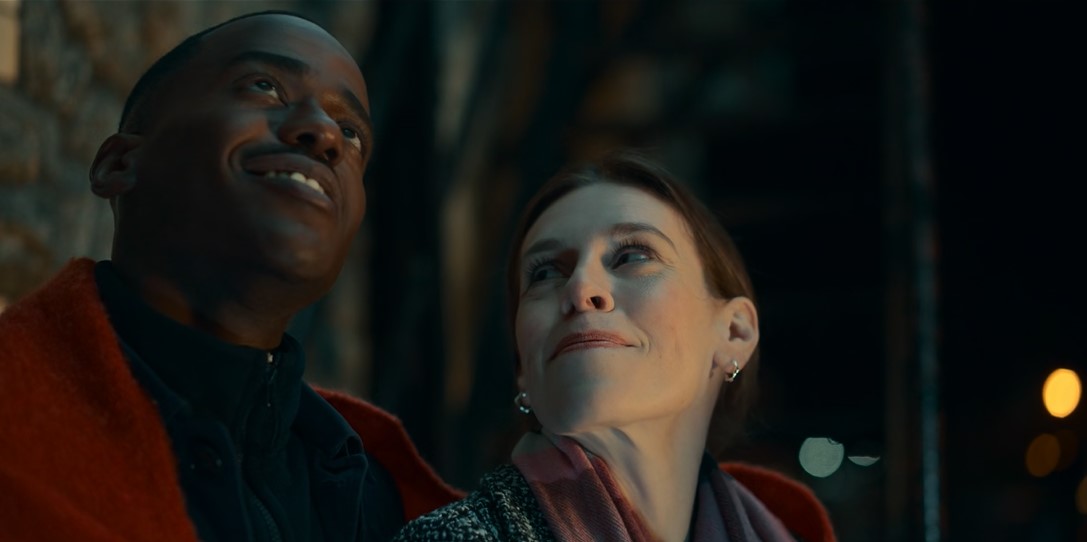
Returning to the episode’s main narrative, the Doctor realizes that he is now the future self he had previously encountered and is accosted by his past self. “This is why nobody likes you!” the past Doctor cries, “You have to be mysterious all the time. That’s why everyone leaves you, why you are always alone.” This scene carries added significance, as the Doctor has just spent a year being mysterious with Anita, leading to him again being alone. Rather than demonstrating his growth, writer Steven Moffat undermines expectations and uses the time-twisted plot of “Joy to the World” to reveal that the Doctor has remained the same—that he hasn’t evolved and continues to keep people at arm’s length.
The episode doubles down on this revelation as the Doctor is almost immediately cruel to Joy, insinuating that she is the world’s “worst, loneliest, saddest” person, before calling her a “sad-sack human trainwreck,” making fun of her name, commenting on her weight, and invoking her dead mother. Sure, the Doctor posits that these actions are part of his plan to free Joy’s mind from the control of the alien briefcase, but does he have to be so malicious? The episode itself seems to be aware that the Doctor has crossed a line, as Fifteen notes, “You’re thinking that maybe that wasn’t a good way to save your life, but let me tell you something: there’s no such thing as a ‘bad’ way,” as if to remind the audience that the Doctor isn’t the villain of the story. Though the Doctor’s gaslighting works on both narrative and metatextual levels, it is still exceedingly unpleasant to watch. This Doctor is not a good man.

Unfortunately, despite the interesting character revelations that result from the story’s interlude, the episode’s third act again suffers when the threadbare storyline begins to unravel upon inspection. The plot’s main conflict makes sense on a basic level: Villengard Corporation wants to create a star to use as a near-limitless source of energy for their weapons manufacturing operations. However, birthing a star takes thousands if not millions of years. Thus, Villengard uses the Time Hotel to deposit a star seed in the distant past and retrieve it moments later, fully developed, in the present. What the narrative doesn’t address is why Villengard doesn’t just utilize any of the Universe’s other already existing stars.
From there, it’s really a downhill slide into nonsense. How is Joy able to consume and then fly into space with a star seed that was meant to destroy the Earth? Why is the resulting star not only vividly bright in 1 AD, but also in 1940 and through to the present day? Why does the star seem to instill a sense of hope in those who see it? How does any of this allow Joy’s dying mother to be disintegrated and reunited with her spacefaring daughter in 2020? And, if that happened in 2020, why, in 2024, does Joy state that her mother died in the hospital rather than claim, “My mother disappeared from her hospital bed, and no one knows what happened”? Moffat seems determined to wrap this Christmas episode with a too-neatly-tied bow of a conclusion that emphasizes sentiment over narrative logic.
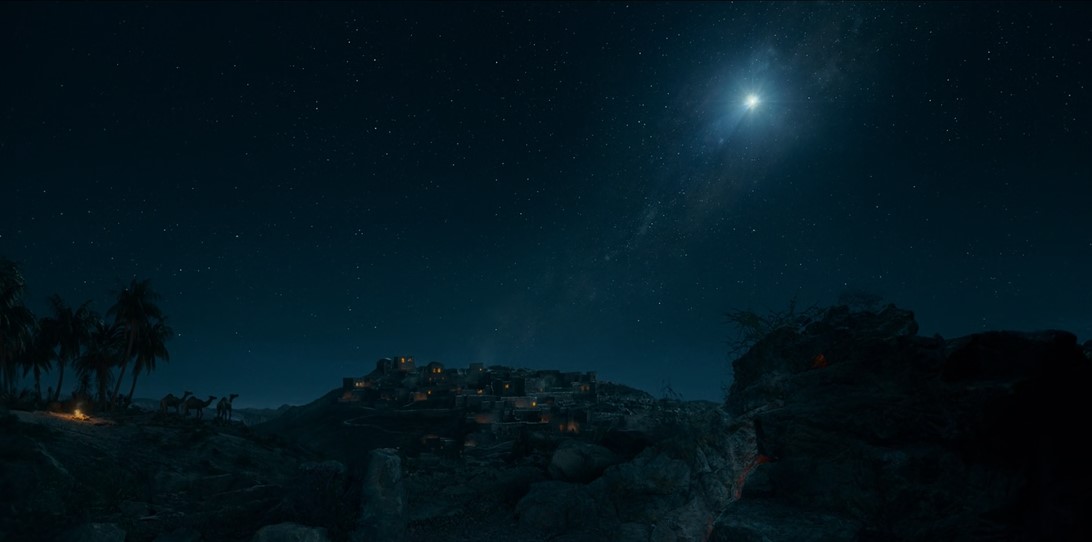
What the third act does well is drive home the overwhelming message of the episode’s first two acts—that the Doctor’s whirlwind energy needs to be reigned in by a capable companion. Neither Joy nor Anita function as a companion within the story, with Joy being a puppet of the alien briefcase for much of the episode and Anita never truly knowing the Doctor’s character. Following 51 minutes of an insufferable Doctor being an inconsiderate prat, companion Ruby Sunday’s cameo is a breath of fresh air and a reminder of how integral both Ruby and actress Millie Gibson are to the current success of the series.

Random Musings
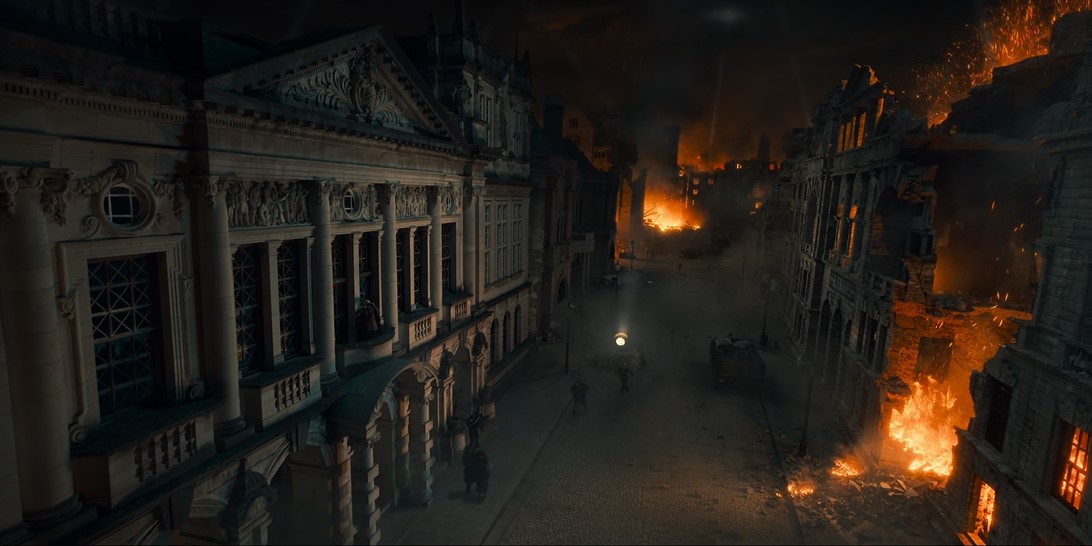
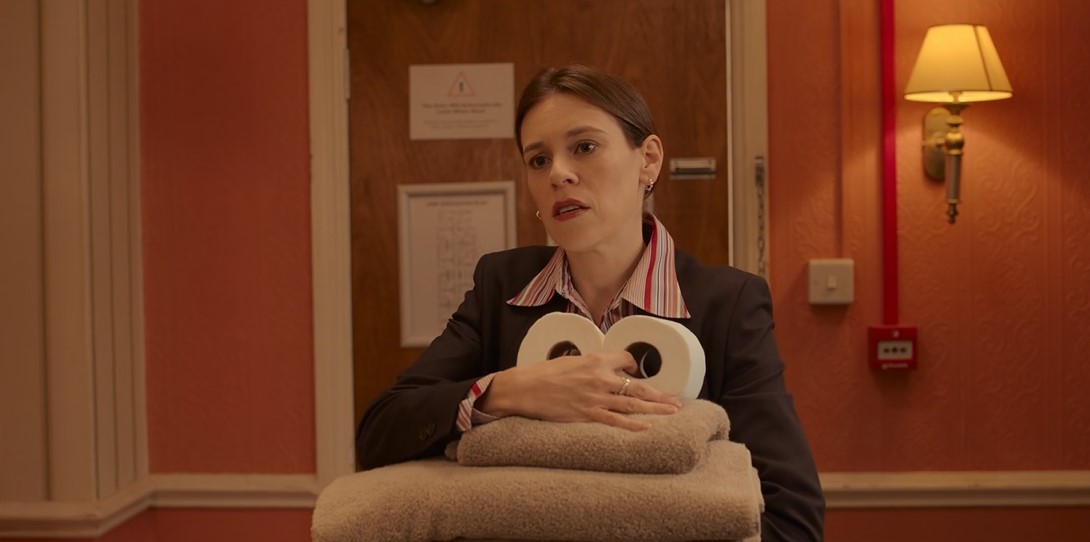
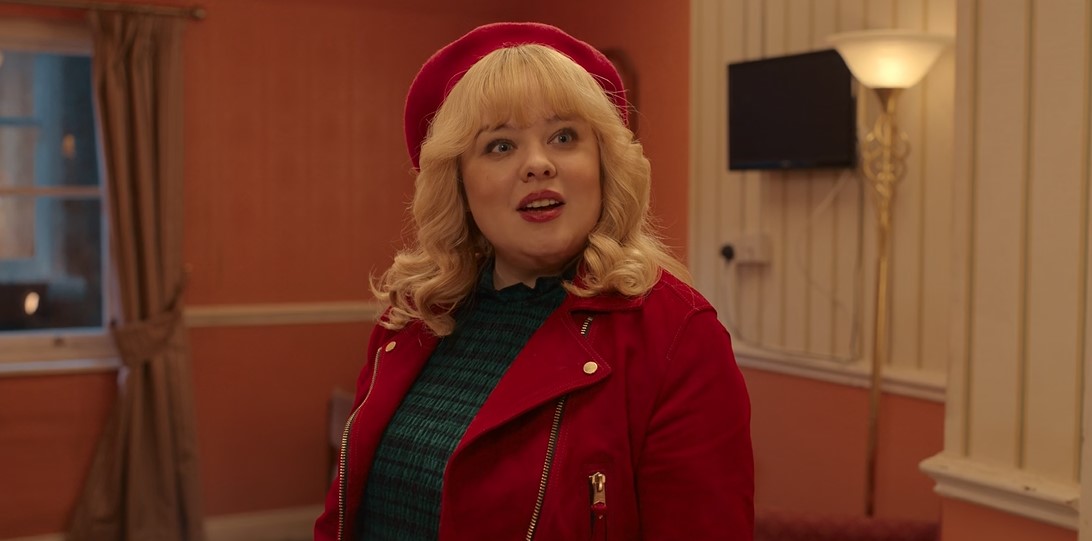




(Time) Capsule Review
Hampered by plot details that fall apart when examined, showrunner Steven Moffat’s script for “Joy to the World” only shines during the interlude between the first and final acts. The episode’s novel use of a time portal allows the Doctor to interact with past and future versions of his present incarnation and begs the audience to contemplate why the latter has not improved over the former. Sadly, both versions of Fifteen are cruel to the story’s two female leads, ignoring one’s emotional needs before gaslighting the other. The episode’s twist ending isn’t the savior that Moffat intends (pun intended), and the third act is only buoyed by a brief cameo from the ever-charming Ruby Sunday.
If you’d like to interact with the author of this article, follow him on Twitter @ClintHassell.




